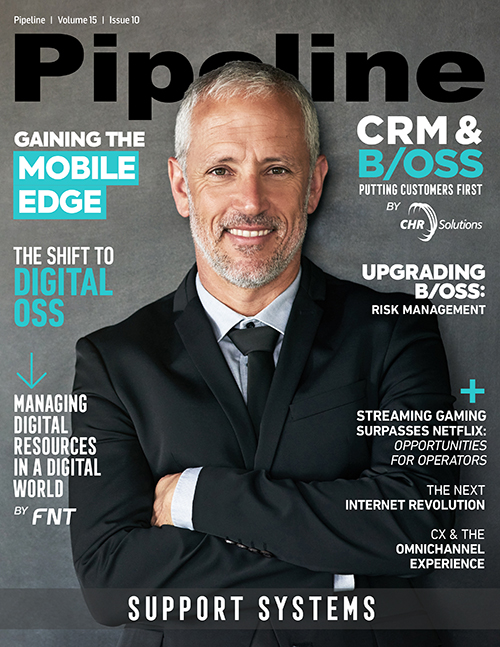CRM & B/OSS: Putting Customers First
More importantly, a system that can accurately manage the large amounts of data needed to provide a winning quote to your prospects is essential. The ability to track leads and report on them gives service providers the business intelligence they require to understand customer interest, competitively position the opportunity, and close the sale. Put simply, if you know how many sales opportunities your team is working on, and which deals are likely to close soon, then you know where to focus your efforts.
Efficiently managing the customer journey
While tracking and reporting on leads used to be a task exclusive to larger business accounts, today the markets have changed. Residential customers are more informed about their options. As a provider, you cannot continue to use the same technology, tools and efforts and expect to win new business (and valuable ongoing loyalty).
Your B/OSS solution needs to be able to provide detailed pricing and bundling options along with an online user interface—think of a shopping-cart-like approach on your website. This functionality allows anyone to look at different product and service offerings and get the additional details they need to make a buying decision. After all, today’s consumer wants to compare and contrast options—and do so anonymously. Often this research and shopping happens long before or after traditional work hours, when you may not have customer service resources on hand to handle a call—if your customer wishes to place one at all. Providing detailed access to information 24/7/365 is one of the competitive advantages that can help win over this new generation of consumers. They are focusing their efforts before they order, and they must be engaged long before they decide to buy if you are going to win the sale. If your systems and organization only focus on what happens after they have ordered, you’ll lose your business to competitors who have greater visibility and interaction with the customer base prior to the actual sale.
Having said all this, CRM tools are not new to the telecommunication business. In fact, most providers are using some type of tool today to understand and manage pre-customer opportunities. The need, however, for those tools to be fully integrated into the B/OSS ecosystem is increasing. Duplication of data, swivel chair processes, and lack of customer visibility from the B/OSS into the CRM are challenges that impede accuracy and efficiency of the sales and operational process. Additionally, building and maintaining integration between those systems is both costly and demanding of your resources. A fully inclusive CRM/B/OSS will provide a single product model used to quote, provision and bill the customer without syncing, duplication or translating data between the sales and billing systems. A successful system will also provide a consolidated workflow to manage all groups and resources throughout all processes of your business. Because of these demands and of the market pressures at play, CRM is no longer a ‘nice-to-have’ option in your B/OSS. It’s now a requirement in order to keep pace with the competition and provide a valued customer experience.
When going after new customers, especially larger business accounts, you need a comprehensive B/OSS that will work to help you collect all of the details necessary to accurately quote the customer and ensure you win “profitable business.” Tracking data for cost of connection for new service locations or buildings (whether it be construction or equipment costs), identifying other possible prospects in the area, and capturing site survey data for every opportunity factor as some of the most critical aspects to long-term success. Knowing exactly the cost of the solutions you will provide, and the necessary contract terms can mean the difference between achieving successful margins or losing money.
Profitability is key
To ensure profitability, the information about every sales opportunity needs to be visible to all internal groups. Your B/OSS system needs to be able to gather data from every area of your pre-sales operation and capture it for all to see. In the past, pieces of data often ended up lost on someone’s desk or computer. Next-gen B/OSS systems create actionable data, which management and prospective customers can use to make mutually beneficial decisions.
Getting into a sales contract that doesn’t work for both sides is never good for anyone. The old saying “We’re going to lose money on the individual sale, but make it up on volume” is only funny when you’re speaking about someone else’s business. Companies need to know all of the end-to-end costs in order to create accurate pricing and contract terms in order to deliver profitable business. It’s far too easy for someone to change providers if your contracts don’t work for them. Service providers need efficient, consolidated tools to know what products and pricing work in the marketplace. The systems and technology you use are only valuable when they enable that to happen.


















